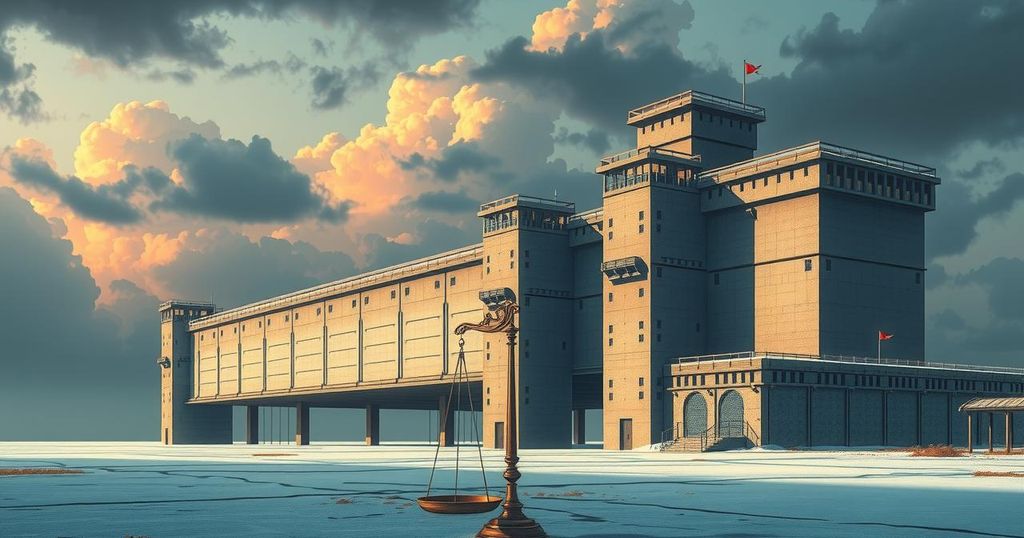Explainer: El Salvador’s Controversial Mega-Prison and Its Implications

El Salvador’s President Nayib Bukele proposed to house U.S. deported criminals in the new CECOT mega-prison. Bukele’s administration has faced scrutiny over its extreme anti-gang tactics that have resulted in mass arrests. CECOT holds up to 40,000 inmates, though it faces severe criticism for overcrowded conditions and human rights violations.
U.S. Secretary of State Marco Rubio announced that El Salvador’s President Nayib Bukele is prepared to house criminals deported from the U.S. in the country’s new mega-prison, CECOT. This proposal, considered generous by Rubio, could potentially include members of the Venezuelan gang, Tren de Aragua. Although Bukele is willing to accept U.S. inmates, legal constraints currently prevent the deportation of American citizens from the U.S.
President Nayib Bukele is noted for his stringent measures against gang violence, which has led to a significant drop in homicide rates in El Salvador. Since declaring a state of emergency in March 2022, over 84,000 alleged gang members have been arrested, with further plans for additional arrests. However, this approach has raised concerns, with reports of human rights violations during these detentions.
The CECOT, or Terrorism Confinement Center, opened in February 2023 and is dubbed “Latin America’s biggest prison.” Covering 57 acres, the facility is located 70 km from San Salvador and designed to hold up to 40,000 inmates, specifically targeting members of gangs like Mara Salvatrucha (MS-13) and Barrio 18. Current occupancy stands at around 14,500 inmates.
Constructed at a cost of $115 million, CECOT’s funding and contractors remain largely undisclosed, although an investigation revealed numerous contracts awarded to one business group. The prison has sparked various reactions, drawing admiration from law-and-order proponents and severe criticism from human rights advocates.
While some regional leaders support Bukele’s approach, critics raise alarms regarding conditions within CECOT. The Inter-American Commission on Human Rights reported worrying overcrowding, estimating an average space allocation of merely 0.60 square meters per inmate, which far exceeds international standards for humane conditions.
El Salvador has been struggling with violent crime, heavily influenced by gang culture, notably involving MS-13 and Barrio 18. In response, President Bukele has prioritized aggressive anti-gang policies, resulting in high incarceration rates among suspected gang members. His administration has embarked on a controversial project to build CECOT, a mega-prison, to manage the burgeoning prison population. The prison’s design and its implications for human rights have sparked global debate.
The establishment of CECOT reflects El Salvador’s controversial strategies against gang violence under President Bukele. While the prison aims to manage rampant gang-related crime, it raises significant concerns regarding human rights abuses and overcrowded conditions. The potential offering to the U.S. for deported criminals further complicates the narrative around Bukele’s aggressive incarceration policies, balancing public safety with civil liberties.
Original Source: www.usnews.com







